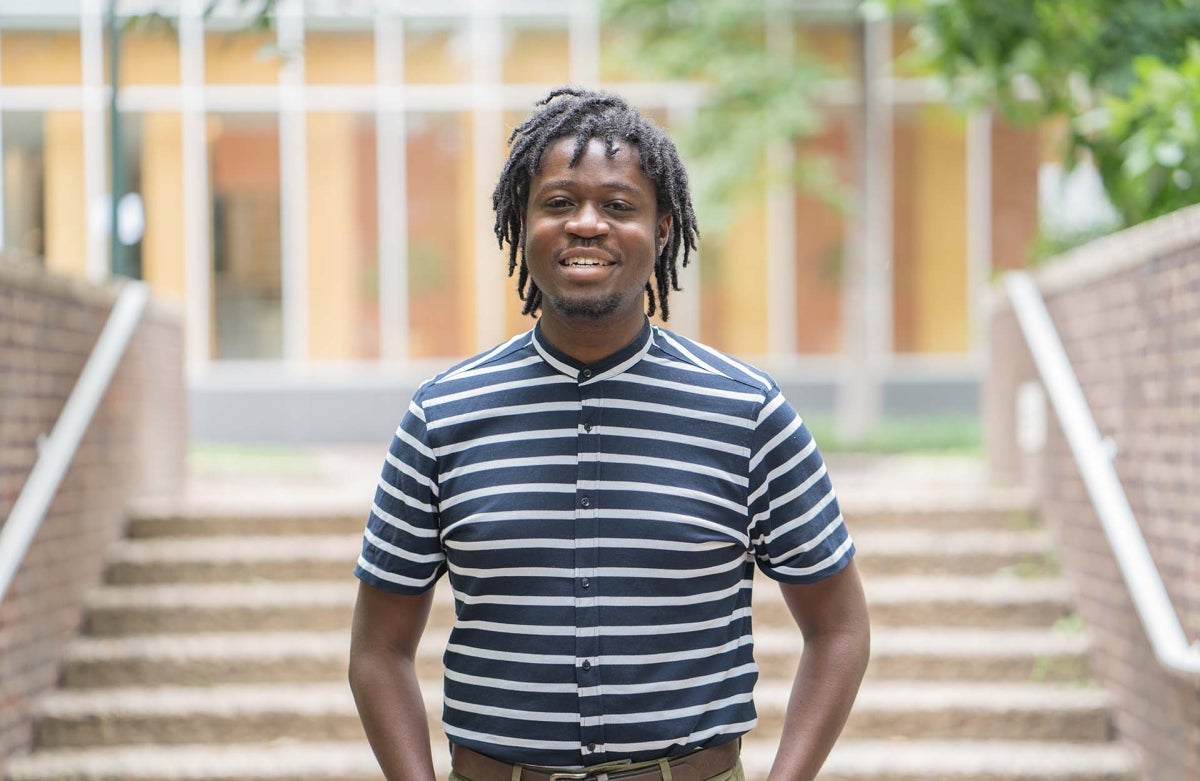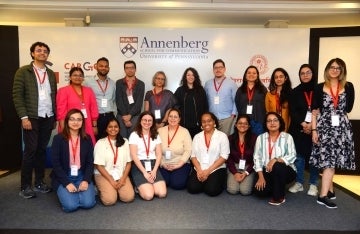What is Code Switching? Q&A With Darin Johnson
In this Q&A, doctoral student Darin Johnson explores the mental processes behind code switching and their implications.

We all code switch. Think about how you might discuss something differently with your friends than with your parents, and differently with your parents than your teachers or your supervisors. As an Annenberg School for Communication doctoral student, Darin Johnson studies code switching and the psychological mechanisms behind it. His research focuses particularly on the ways that people with marginalized identities code switch their language and behavior. Johnson is also a member of the Communication Neuroscience Lab, a group of researchers that use the tools of psychology and brain science with the mission of understanding how people coordinate, bond, and influence one another in order to increase health and happiness.
Johnson is the first author on a new Affective Science commentary, “Social Cognitive and Affective Antecedents of Code Switching and the Consequences of Linguistic Racism for Black People and People of Color” and we reached out to him to learn a little more about code switching and the mental processes behind it.

What is code switching and how does it present in day-to-day life?
Code switching is adapting the way you might communicate in different contexts like, work, school or even at home. For instance, at work maybe you greet your colleagues by saying, “Hi. How’s it going?” Whereas at home, you greet your parents by saying, “Heyyyyyyy, how are ya?!” Perhaps at school, you fist bump your friends and say, “What’s up?”, but when a teacher passes by you simply smile and say, “Hello, Professor.” All of these are examples of code switching.
What is linguistic racism?
When I was in the 6th grade, kids used to tell me that I was an Oreo. They used this term to describe me because they thought I was "Black" on the outside and "white" on the inside... like the cookie. They told me that I spoke like a white person, not a Black person. Their perceptions denied my cultural identity and replaced it with imagination. This is a form of linguistic racism.
Linguistic racism can be described as discrimination against communities of color on the basis of their racial or cultural identity and their language practices. Another example of linguistic racism is when a racialized person, who is perceived to have an accent, experiences speech-based discrimination even despite engaging in the same linguistic practices as a white speaker.
How might code switching look different for a person of color as opposed to a white person?
Perspectives on code switching vary between academic disciplines within and outside of academia. I think the answer to this question is an ongoing conversation. In this paper, we take the perspective that code switching, or varying one’s communicative practices across contexts, is largely a universal phenomenon across racial groups. However, we posit that the extent to which a person may engage in self-protective code switching, or, to borrow a term from Dr. Courtney McCluney and colleagues (2021) racial code switching, in attempts to avoid discrimination may vary across racial groups. We posit this understanding that the consequences, not of code switching, but of racism— linguistically or otherwise— are salient for many people of color in society.
What does your paper teach us about the mental processes behind code switching? Can you explain the process of mentalizing and how that relates to code switching?
This paper primarily considers whether mentalizing — the process by which individuals attempt to understand others' mental states (e.g., their thoughts, feelings) — is associated with code switching.
Picture this:
An employee walks in a conference room for a meeting. They scan the audience, thinking about how the audience members might view them. Then, based on their appraisal of their own thoughts and beliefs about the audience members’ mental states, they determine how they’ll use language as they introduce themselves. In this paper, we theorize that mentalizing may be a process that underlies how people code switch (i.e., how they determine their communication styles in different contexts).
What are the consequences of altering one’s own behavior to combat linguistic racism?
I think at a macro level, the question becomes: Are you able to be yourself? Are you able to be heard as you hear yourself, known as you know yourself? At the level of this paper, we postulate that cognitive effort associated with self-presentation (i.e., constantly having to think about how you present yourself) and stress may constitute consequences.
How do you anticipate your research on this topic evolving in the future?
I’m still working it out, but I definitely want to continue working and collaborating with others. I want to use observational studies and experimental designs to understand more about psychological processes that may be related to language variation as well as understanding more about perceptions of code switching in general. I see the potential for qualitative research as well in learning more about code switching. I’m grateful for the support of the lab, my mentors, and for folks outside of the lab. I guess we’ll see!



